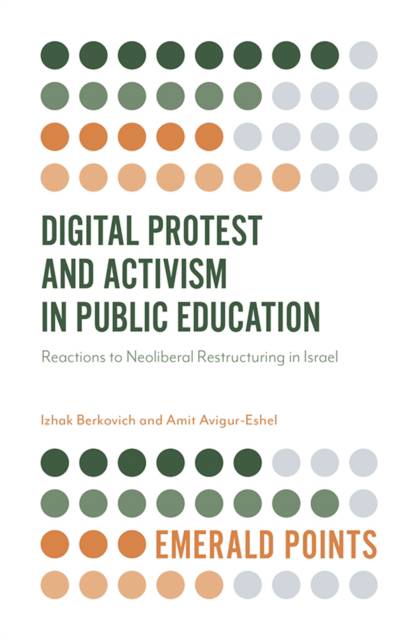
- Afhalen na 1 uur in een winkel met voorraad
- Gratis thuislevering in België vanaf € 30
- Ruim aanbod met 7 miljoen producten
- Afhalen na 1 uur in een winkel met voorraad
- Gratis thuislevering in België vanaf € 30
- Ruim aanbod met 7 miljoen producten
Zoeken
Digital Protest and Activism in Public Education
Reactions to Neoliberal Restructuring in Israel
Izhak Berkovich, Amit Avigur-Eshel
€ 62,45
+ 124 punten
Omschrijving
Digital protest and activism in reaction to the consequences of neoliberalism in public education have become a global phenomenon in the second decade of the 21st century, emerging in countries such as the US, UK, France, and Israel. Teachers, parents, and other stakeholders in education are increasingly using digital media in their protest and activism efforts, yet these efforts have hardly been investigated to date.This book addresses this gap and employs an empirical exploration of the way in which Internet-based protest activity concerning public education issues is constructed, mobilised, and carried out. In doing so it provides key insights for the study of educational politics in the digital age. It shows how digital media is used by teachers and parents to create a bottom-up politics, spanning a common divide in the study of education politics between the macro (policymaking) and the micro (school) levels. The authors propose a novel taxonomy of uses of social media by digital activists, and argue that Internet-based social mobilisations develop different patterns of use of social media, based on the lived experience of their members and potential supporters. Finally, the book situates the rise of digital activism in education within the neoliberal restructuring of national education systems and the rise of neoliberal discourse of competition, budget discipline, and measurable achievements. The authors highlight three cases of Internet-based mobilisations in Israel, in which teachers and parents successfully affected public education policy. By providing a case-study driven analysis of digital protest and activism in education, this book will prove an invaluable text for researchers, leaders and practitioners in the field of education policy and comparative education.
Specificaties
Betrokkenen
- Auteur(s):
- Uitgeverij:
Inhoud
- Aantal bladzijden:
- 168
- Taal:
- Engels
- Reeks:
Eigenschappen
- Productcode (EAN):
- 9781838671051
- Verschijningsdatum:
- 1/11/2019
- Uitvoering:
- Paperback
- Formaat:
- Trade paperback (VS)
- Afmetingen:
- 124 mm x 193 mm
- Gewicht:
- 181 g

Alleen bij Standaard Boekhandel
+ 124 punten op je klantenkaart van Standaard Boekhandel
Beoordelingen
We publiceren alleen reviews die voldoen aan de voorwaarden voor reviews. Bekijk onze voorwaarden voor reviews.








